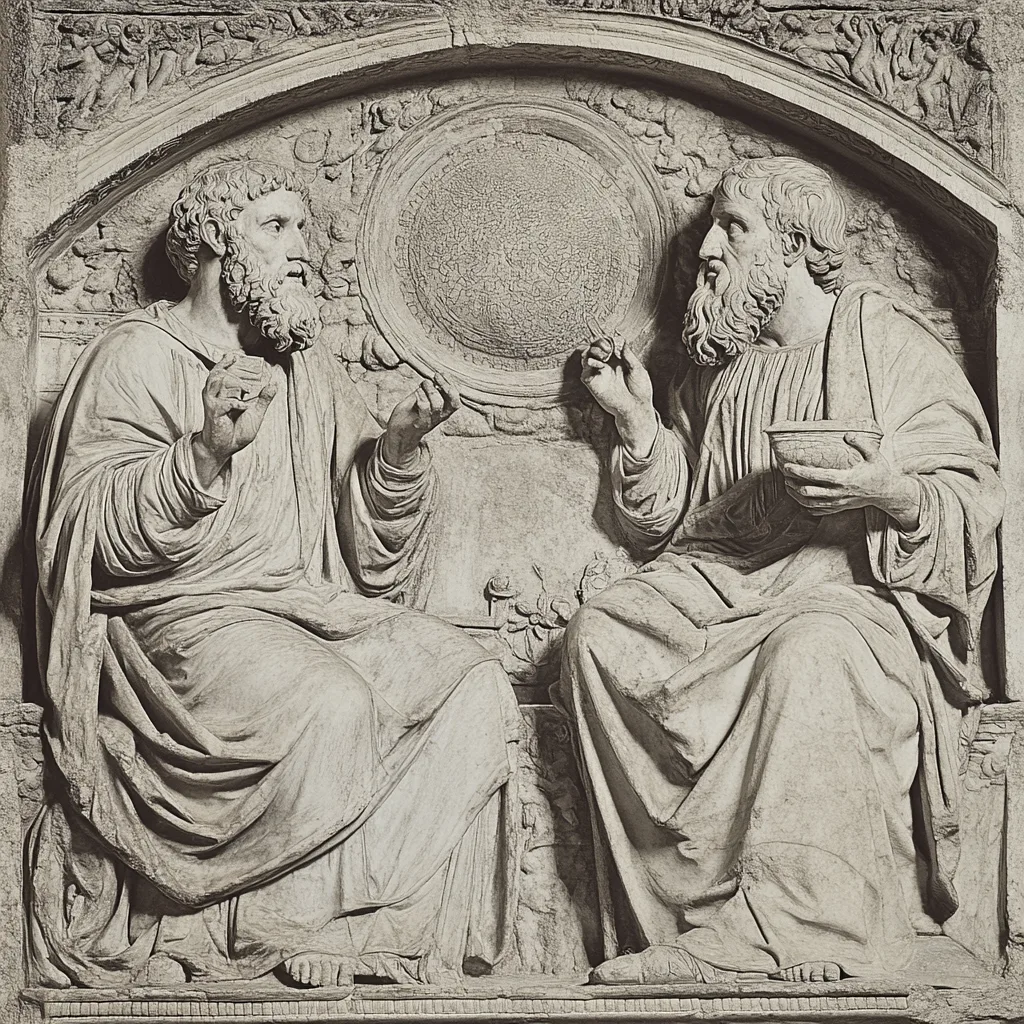This is continued from part 1, part 2, part 3, and part 4.
Purchase a copy of “On Original Sin, Vol. 1” here! (affiliate link)
In the last post I looked in detail at Vermigli’s view of how original sin is transmitted to Adam’s descendants. The question for the Christian who struggles with same-sex attraction, or any attraction similar to that, is: what does this have to do with my issues now? What does original sin have to do with my life as a born-again Christian? While Vermigli doesn’t use our terminology today, he does address what original sin looks like in the life of the Christian. What happens to original sin once a person is regenerated, or “born again” by the power of the Holy Spirit?
Original Sin called Indwelling Sin after Regeneration
In the Christian, original sin does indeed remain after regeneration, however it is often called by a new name: indwelling sin. This is to emphasize the fact that original sin no longer has mastery over the Christian. Instead, it remains within as an unwelcome visitor. But this does not negate the reality that it is still that same, old, original sin. The sin that indwells and inheres to the Christian, the sin that makes us inclined to what is evil, is that original sin that we inherited from our forefathers. Part of original sin remains in each of our faculties. Vermigli mentions this in several places as a reality, but he is most interested in the next part of our discussion, which is the way in which original sin is being altered in the Christian.

The Pattern/Path of Indwelling Sin’s Removal
Original sin doesn’t remain in the Christian as a static kind of invader. Vermigli argues that in regeneration, God begins to undo the corruption of original sin by following the inverse of the corrupting order we looked at in the last post. He says, “First and foremost, our reason and will must be reborn. Afterwards follows the regeneration of the affections and the body.” (p. 22) He points out Paul’s adage that we must be renewed in our minds first and foremost, and that from this Spirit-wrought renewal, our affections will be renewed as well. As original sin is being conquered and removed, the Christian is being conformed to the perfect image of Jesus.
Westminsterian Agreement on Indwelling Sin
Again, like with the last post on the impartation of original sin, we see that Vermigli’s doctrine of indwelling sin is in line with Westminster! There are several areas where they disagree, as we will see later, but for now I think it is sufficient to point out that they agree here. The WCF chapter 13 deals with this topic under the title “Of Sanctification”, and its authors suggest that “this sanctification is throughout, in the whole man; yet imperfect in this life, there abiding still some remnants of corruption in every part”. It is worth noting that in Calvin’s particular views on this topic, regeneration begins this process, and then continues it throughout the entire Christian life. What we often term as separate theological concepts as “regeneration”, “repentance” and “sanctification”, Calvin unites under the single term regeneration. That said, the post-Reformation theologians are clearly in agreement with Vermigli on this aspect of indwelling sin. In the last post, we’ll examine what exactly our indwelling sin has to do with our particular sin-inclinations, and how we should view ourselves in the light of this. But, before then, in the next post, we will look at how original sin (indwelling) is different than actual sin.
This is continued in part 6.
Excursus 1: Vermigli and Post-Reformation Theologians Disagree over some basic anthropology
As I read through Vermigli’s work, I can’t help but wonder how his views fit with the other Reformers and Post-Reformation reformers on anthropology. For instance, Calvin rejects the distinction that is made between the nobler or baser parts of the soul, which, in Vermigli’s work is very important. Calvin suggests that the faculties of the soul include, “reason, understanding, and affections” (commentary on Romans 8.6), and that the idea of a higher soul is falsely devised, being considered, “the mind or understanding, which is called the superior part of the soul by the advocates of free-will” (commentary on Romans 8.9). In Petrus Van Mastricht’s anthropology (p. 104 of vol. 1), Petrus includes the intellect, will (=heart, the principium that commands spiritual acts), human acts, and habit (Aristotle’s intellectual habits include: understanding, knowledge, wisdom, and prudence). I have no solutions here, just a kind of rambling thought about how many define anthropology in differing ways.
Excursus 2: Vermigli and the Confession Disagree over the imputation of Adam’s guilt
Vermigli argues that original sin is an imparted thing, but not an imputed thing. By impute, we can understand Vermigli to mean, “consider one responsible for or accountable for“. He repeatedly argues that it would make little sense, and be unjust of God, to impute Adam’s sin to his children. He states, “God is supremely good and does not..impute to us another’s sin, but our own iniquity, which clings to our nature form the very beginning” (p. 27).
But when I examine other early Reformed sources, I see them likewise deny the imputation of original sin. Calvin, as well as the Geneva Bible, for example, suggest that Romans 5:12 (the proof text used in WCF about imputed original sin) is concerned with original sin as imparted. Calvin writes, “sin in this case, is to become corrupt and vicious; for the natural depravity which we bring, from our mother’s womb, though it brings not forth immediately its own fruits, is yet sin before God, and deserves his vengeance: and this is that sin which they call original” and a few sentences later says, “our innate and hereditary depravity is what is here referred to.” In his Institutes (I.I.6) he writes, “There is consequently but one way for us to interpret the statement, ‘We have died in Adam’: Adam, by sinning, not only took upon himself misfortune and ruin but also plunged our nature into like destruction. This was not due for the guilt of himself alone, which would not pertain to us at all, but was because he infected all his posterity with that corruption into which he had fallen.”
While a number of the early Reformers clearly did not believe in the imputation of Adam’s sin, the post-Reformation Reformers did believe this, and I believe properly advanced this teaching. My own confessional document is the Westminster Confession of Faith, which argues that because original sin is imputed, therefore, it is also imparted (SHORTER CATECHISM, 14–19; LARGER CATECHISM, 22–29; CONFESSION OF FAITH, VI.). Here are some primary sources to explore, as well as Anthony Burgess’ work on it, and Beattie’s commentary on it.




Leave a Reply